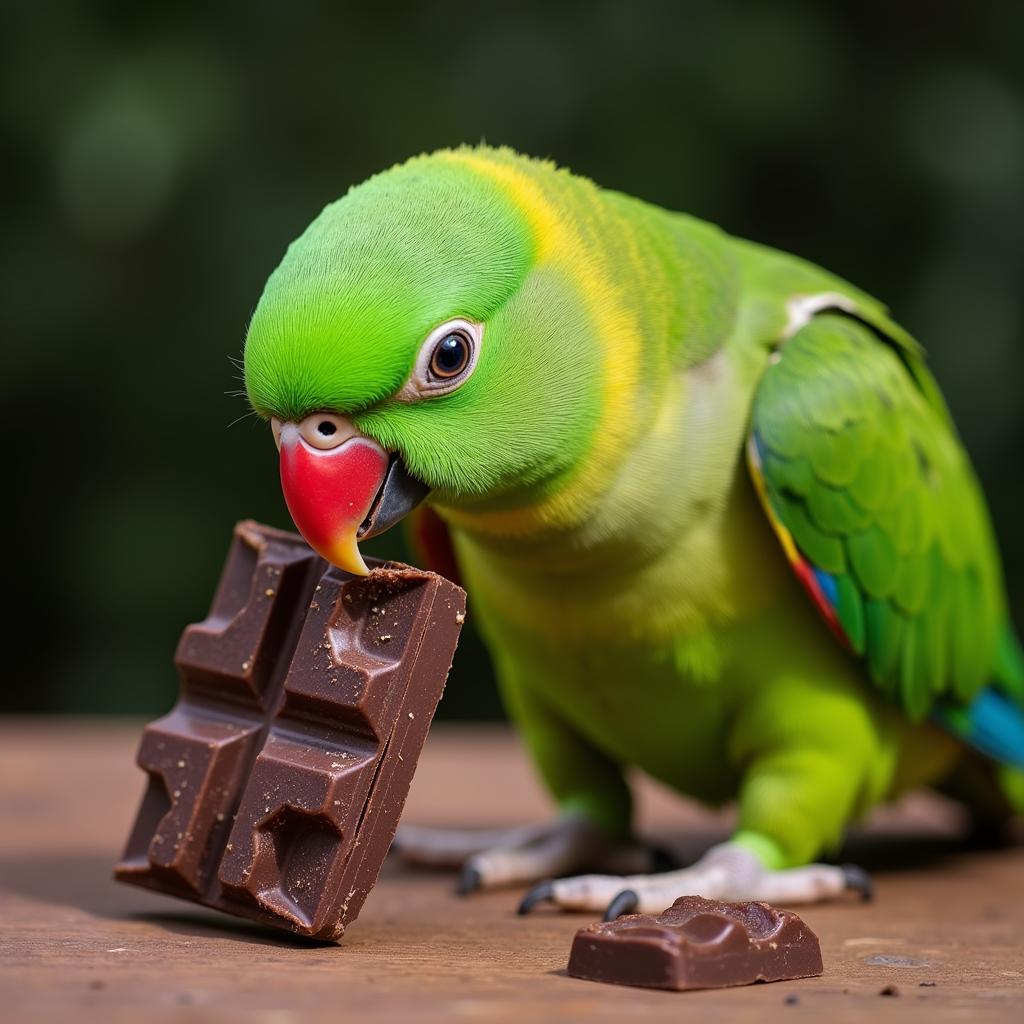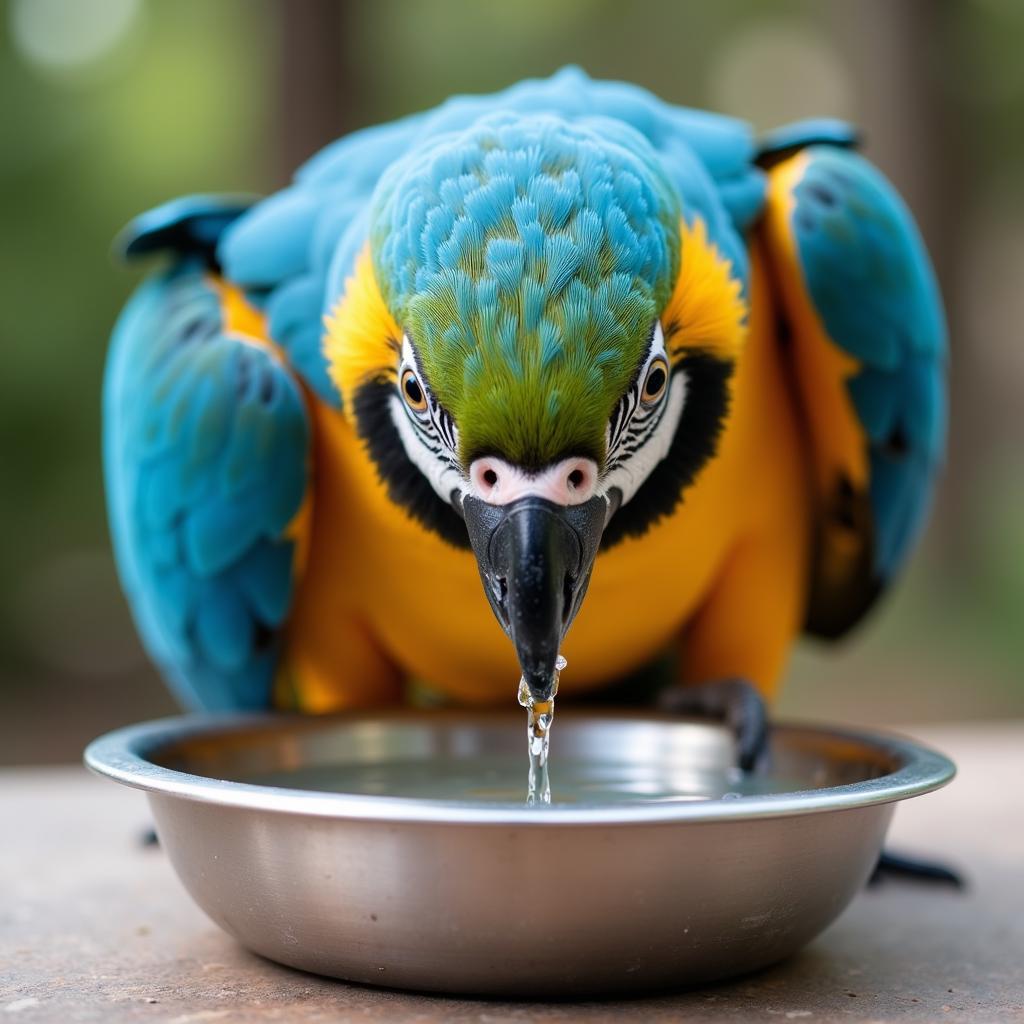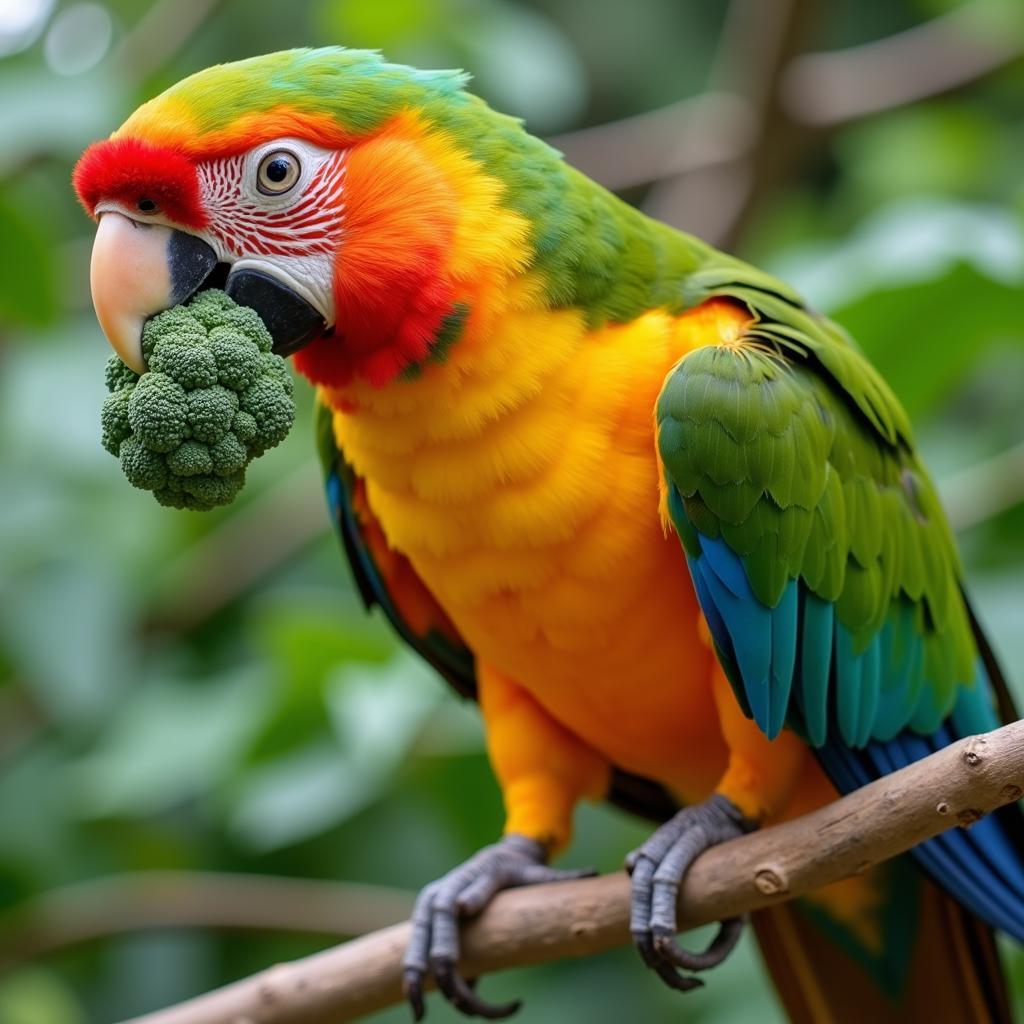Keeping our feathered friends healthy and happy is a top priority for any parrot owner. Understanding what constitutes Toxic Foods For Parrots is crucial for their well-being. This article will delve deep into the dangers lurking in seemingly harmless foods, equipping you with the knowledge to provide a safe and nutritious diet for your beloved companion.
Common Toxic Foods for Your Parrot
Many everyday human foods can be incredibly harmful, even fatal, to parrots. Let’s explore some of the most common culprits.
Chocolate: A Deadly Treat for Parrots
Chocolate contains theobromine, a compound that parrots cannot metabolize effectively. Even small amounts of chocolate can lead to vomiting, diarrhea, seizures, and even death. Dark chocolate is particularly dangerous due to its higher theobromine concentration. Always keep chocolate far out of your parrot’s reach.
 Parrot Avoiding Chocolate
Parrot Avoiding Chocolate
Avocado: A Hidden Danger
While avocados are a healthy snack for humans, they contain persin, a fungicidal toxin that can be harmful to parrots. Persin can cause respiratory distress, heart failure, and fluid accumulation around the heart in these birds. It’s best to err on the side of caution and avoid feeding your parrot anything containing avocado.
Caffeine: A Stimulant to Avoid
Just like chocolate, caffeinated beverages like coffee, tea, and soda are dangerous for parrots. Caffeine can cause hyperactivity, increased heart rate, and even cardiac arrest in these sensitive creatures. Always provide fresh, clean water instead of caffeinated drinks.
 Parrot Drinking Fresh Water
Parrot Drinking Fresh Water
Fruits and Vegetables to Avoid
While many fruits and vegetables are essential components of a healthy parrot diet, some pose significant risks.
The Pitfalls of Stone Fruits
The pits of fruits like cherries, peaches, plums, and apricots contain cyanide, a highly toxic substance for parrots. Even small amounts can cause severe health problems or even death. Ensure your parrot never has access to these fruit pits.
The Onion and Garlic Family
Onions, garlic, chives, and leeks contain compounds that can damage a parrot’s red blood cells, leading to a condition called hemolytic anemia. This can result in weakness, lethargy, and even death. Keep these aromatic vegetables away from your feathered friend.
 Parrot Enjoying Safe Vegetables
Parrot Enjoying Safe Vegetables
Other Toxic Substances
Beyond food, several other household items can be toxic to parrots.
Heavy Metals and PTFE
Heavy metals like lead and zinc, often found in older paint and galvanized cages, can cause heavy metal poisoning in parrots. Similarly, non-stick cookware coated with PTFE (polytetrafluoroethylene) releases toxic fumes when heated, which can be fatal to birds. Opt for stainless steel cookware and ensure your parrot’s cage is free of heavy metals.
What to Do if Your Parrot Ingests a Toxic Substance
If you suspect your parrot has ingested a toxic substance, contact your avian veterinarian immediately. Time is of the essence in these situations. Knowing how long can a parrot go without food is crucial in emergencies, but don’t delay seeking professional help. Consider specialized food options like eclectus bird food or eclectus parrot food for specific dietary needs.
Conclusion: Protecting Your Parrot from Toxic Foods
Being aware of toxic foods for parrots is essential for responsible bird ownership. By understanding the potential dangers and taking preventative measures, you can create a safe and healthy environment for your feathered companion to thrive. Remember, a well-informed owner is a parrot’s best defense against these hidden dangers. For specialized dietary requirements, consider exploring options like quaker parrot foods to avoid or consider a bird food baking company for homemade treats.
FAQ
-
What are the most common toxic foods for parrots? Chocolate, avocado, caffeine, and the pits of stone fruits are among the most common.
-
Can parrots eat onions or garlic? No, these vegetables can damage a parrot’s red blood cells.
-
What should I do if my parrot ingests something toxic? Contact your avian veterinarian immediately.
-
Are non-stick pans safe for parrots? No, the fumes released when heated can be fatal.
-
What are some safe vegetables for parrots? Broccoli, carrots, and leafy greens are good choices.
-
Can parrots have fruit? Yes, many fruits are safe, but avoid the pits of stone fruits.
-
Are there any specific foods to avoid for certain parrot species? Yes, research the specific needs of your parrot species.
Need further assistance? Contact us at Phone Number: 02437655121, Email: minacones@gmail.com, or visit us at 3PGH+8R9, ĐT70A, thôn Trung, Bắc Từ Liêm, Hà Nội, Việt Nam. We offer 24/7 customer support.